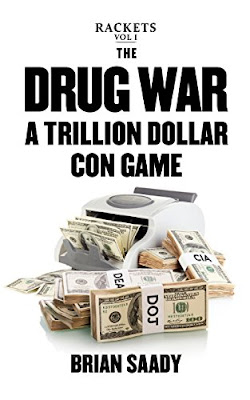Genre: Fantasy
Description:
“Divine intervention isn't all it's cracked up to be.
Gabriel didn’t expect his return to Heaven to be filled with trumpets
and celebration, but he thought he would do more than sit at Michael’s side,
listening to endless catalogs of unfulfilled prayers. He’s tried blending into
every aspect of Heavenly life, but he can’t help but feel that the constantly
praying Faithful and flower-dispensing Handmaidens lack the motivation to do
any true good in the world. Some days, he longs for nothing more than to return
to Earth and tell his beloved Cassia how he feels about her.
When Heaven is suddenly attacked, all the angels become trapped in
their own nightmares. With Michael gone on an angelic mission, Gabriel must
rally the remaining seraphim to rouse the sleeping angels and discover who
seeks to take the agents of Heaven out of the celestial battle. All fingers
point to Bedlam, but Gabriel can’t believe the ex-demon would threaten his
salvation so soon after gaining it.
With few people he trusts, Gabriel must rely on all the lessons he
learned on Earth to save Heaven, Bedlam, and maybe even himself.”
Author:
“Elizabeth Corrigan has degrees in English and psychology and has
spent several years working as a data analyst in various branches of the
healthcare industry. When she’s not hard at work on her next novel, Elizabeth
enjoys singing, reading teen vampire novels, and making Sims of her characters.
She drinks more Diet Coke than is probably optimal for the human body and is
pathologically afraid of bees. She lives in Maryland with two cats and a purple
Smart Car.”
To learn more about Ms. Corrigan please visit her
on Facebook.
Appraisal:
This is
Gabriel's book. Archangel Errant is
told through three Points-Of-View, which are clearly marked in the chapter
headings: Gabriel, Michael, and Bedlam. Gabriel is still not sure where he fits
in on earth or in heaven. We are given a back history of Cassia and his
relationship through the millennia. It’s insightful to see how clueless Gabriel
has been with Cassia and not surprising Bedlam asked him to stay away from her.
I found it
easy to be swept away by the dynamics of the relationships of all the
characters involved. The heavenly hierarchy and politics weigh heavily in this
story as we are given insight into the past and present. This may cause some
readers to think parts of the plot read more slowly, but I found it
enthralling.
When
Michael goes down to earth to assist Cassia, heaven is mysteriously attacked
and all evidence points to Bedlam as the culprit. With Gabriel in charge he
scrambles to figure out what happened, who is responsible, and set things right
again. In the process Gabriel is able to sort out his purpose.
The most
surprising part of the whole story is Michael’s trip to earth to assist Cassia.
Michael has always viewed Cassia as an evil entity even though she has never
chosen to do evil. A lot is revealed in Cassia’s talks with Michael as well as
the reason she believes she was chosen by God to be an immortal human.
I found Archangel Errant to be an excellent
addition to the Earthbound Angels series and thoroughly enjoyed it. As always
Bedlam is my favorite character. Who doesn’t need a little chaos in their lives
to stir things up once in a while? The fact that he is an angel now just makes
it that much more intriguing. I’m looking forward to seeing who is next. I
suspected Michael, but we learned a lot about him in this story. Is Ms.
Corrigan going to make me say, “I only thought I knew Michael?”
FYI:
Archangel
Errant is book three in Ms. Corrigan’s Earthbound Angels series. I would
highly recommend reading this series starting with book one, Oracle of Philadelphia. There are also a
few F-bombs, but only four.
Format/Typo
Issues:
No significant proofing issues.
Rating:
***** Five Stars
Reviewed
by: ?wazithinkin
Approximate
word count: 65-70,000 words











